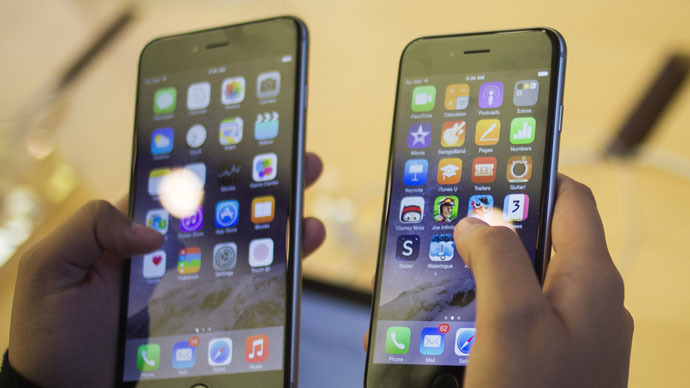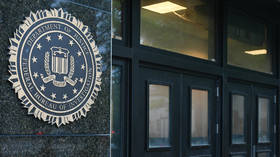Apple, Google helping terrorists with encryption – Manhattan DA

Allowing users to take advantage of advanced encryption in order to keep their messages and mobile communication out of the government’s hands will only help terrorists plot future attacks, a top New York law enforcement official said.
The new encryption services offered by Apple and Google will make it harder to protect New Yorkers, Manhattan District Attorney Cyrus Vance Jr. told local AM970 radio host John Cats. He mentioned built-in encryption – which Apple claims its own engineers cannot break – means that federal and local law enforcement bodies won’t be able to intercept communications between potential criminals and terrorists, even if they acquire a warrant.
When Cats suggested, “terrorists are running out to buy iPhones,” Vance responded by saying, he was “absolutely right.”
“If individuals who are seeking to do serious harm to our citizenry know they have a device that they can use with impunity and that the contents of their messages and images on their phones cannot be accessed by law enforcement that's going to be the terrorists’ community device of choice,” he added, according to the Daily Dot.
Apple and Google are helping the terrorists win, says top NYC official: http://t.co/rSBmEI3UGPpic.twitter.com/d9xtXFqzxr
— Daily Dot Politics (@DotPolitics) April 20, 2015
In addition to Apple, Google is also incorporating encryption into its mobile devices. The two tech giants’ smartphones comprise 96 percent of the global market, the New York Post mentions.
“Apple has created a phone that is dark, that cannot be accessed by law enforcement even when a court has authorized us to look at its contents,” Vance said.
READ MORE: WhatsApp starts encrypting user messages on Android devices
In response, Vance wants police departments around the country to register their opposition with politicians and for hearings on the issue to take place.
On its website, Apple says that encryption is enabled “end-to-end” on its devices and that it has “no way to decrypt iMessage and FaceTime data when it’s in transit between devices.” Additionally, the company states, “We wouldn’t be able to comply with a wiretap order even if we wanted to.” Other features such as iCloud and Mail also offer some encryption protections.
READ MORE: FBI director lashes out at Apple, Google for encrypting smartphones
Vance isn’t the only law enforcement official to come out against widespread encryption. In October, New York Police Department Commissioner Bill Bratton heavily criticized Apple and Google for the move, and FBI Director James Comey also blasted the development.
"There will come a day -- well it comes every day in this business -- when it will matter a great, great deal to the lives of people of all kinds that we be able to with judicial authorization gain access to a kidnapper's or a terrorist or a criminal's device,” Comey said. “I just want to make sure we have a good conversation in this country before that day comes.”
In a blog post at the Wall Street Journal, Amy Hess of the FBI clarified the bureau’s position on the issue, which has seen a surge in support since former government contractor Edward Snowden revealed a massive domestic and international surveillance operation. She said law enforcement officials will need “some degree of access” to encrypted messages in order to stop criminal and violent plots in the future.
“No one in this country should be beyond the law,” she wrote. “The notion that electronic devices and communications could never be unlocked or unencrypted – even when a judge has decided that the public interest requires accessing this data to find evidence — is troubling. It may be time to ask: Is that a cost we, as a society, are prepared to pay?”












